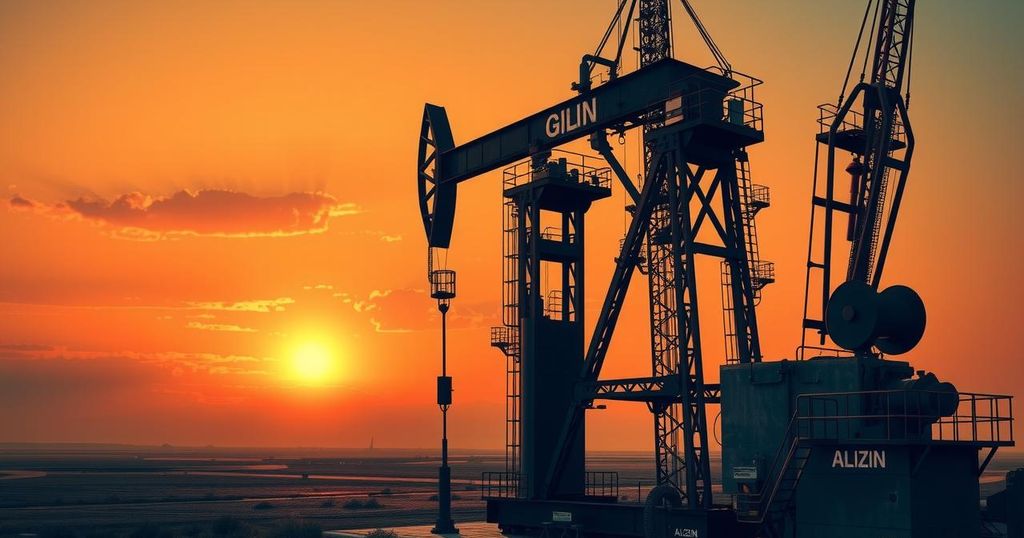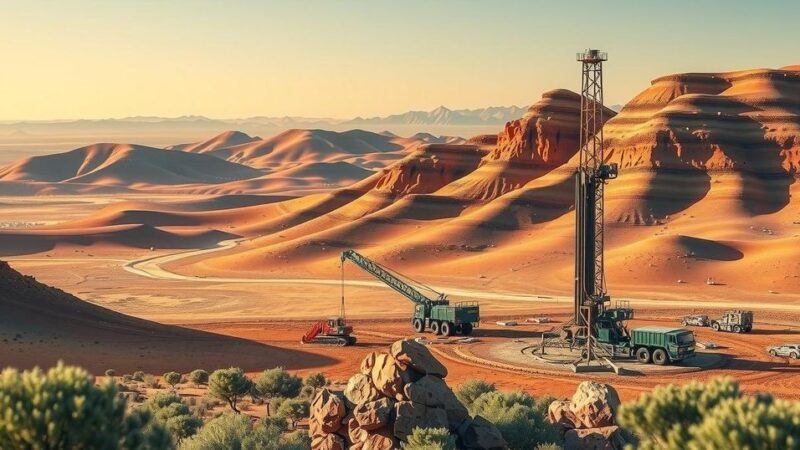Argentina is witnessing an oil production surge, primarily in the Neuquén Basin, raising both optimism for economic recovery and concerns about environmental impact and social equity. The government’s focus on fossil fuels under President Javier Milei contrasts sharply with previous commitments to renewable energy. Despite a positive trade balance, disparities persist in local well-being, with the boom failing to translate into improved living conditions for many.
Argentina is on the verge of becoming a leading global supplier of oil, with recent advances in production reported monthly. Despite heralding these developments as signs of progress amid an ongoing economic crisis marked by falling GDP, worsening income inequality, and rising poverty, significant concerns have arisen regarding the actual distribution of economic benefits and environmental impacts associated with this surge in oil production.
Central to these developments is the Neuquén Basin, where oil production has intensified markedly. Critics, including academics and environmental organizations, argue that the expansion of oil activity in agricultural regions poses risks, particularly through hydraulic fracturing, or fracking. Researcher Agustín González from the National University of Comahue warns of significant environmental impacts and emphasizes the need for regulatory frameworks to balance oil extraction with preserving natural resources and social equity.
The Argentine government’s current policies under President Javier Milei reflect a shift away from environmental considerations, as the Ministry of Environment has been downgraded and climate commitments are neglected. Economist Matías Cena Trebucq states that financial support for renewable energy has been rescinded, aligning governmental focus solely on fossil fuels without a pathway to cleaner alternatives, despite previous legislative commitments to renewables.
Remarkably, Argentina reported a positive energy trade balance for the first time in 13 years, with an increase in energy exports largely attributed to the fracking boom in Vaca Muerta, which now contributes over half of the country’s oil production. While projections suggest potential exports of $30 billion annually by 2030, there are underlying challenges. The current administration’s austerity measures have reduced domestic gasoline and diesel demand, coupled with concerns that growth in oil output has not improved local living conditions or affordability.
Despite substantial investments in Neuquén and an apparent boom in the oil sector, social conditions in the province mirror national averages, highlighting a disconnect between resource extraction and community well-being. Researcher Fernando Cabrera Christiansen emphasizes that oil royalties have largely been used for current expenditures and have not effectively addressed infrastructure or social benefits, leaving poverty levels unchanged.
In conclusion, while Argentina experiences an oil production boom marked by record outputs and positive trade balances, significant questions remain regarding the equitable distribution of economic benefits and environmental sustainability. The policies under the current administration raise further concerns about neglecting climate commitments and social equity, as the oil industry expands without adequate regulatory oversight. As Argentina positions itself as a potential leader in oil exports, the need for a balanced approach prioritizing community welfare and environmental protection becomes ever more critical.
Original Source: www.globalissues.org






